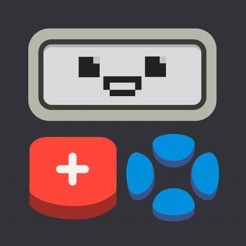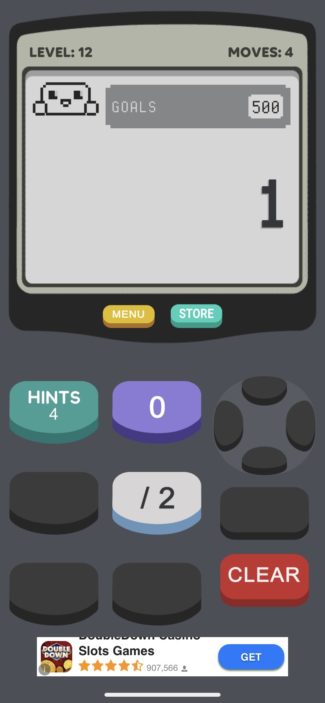Bastion
LQ: 9.15
Recommended Age: 10+
Skills Used: Planning, Working Memory, Mathematics, Reading

Calculator 2: The Game asks the player to use math concepts to help a calculator save the world from a “cute little virus”. Each level asks the player to solve a problem: make the target number, using the given functions, in a certain number of moves.
In more concrete terms, this means the player will have a target number (such as 7) and a starting number (such as 0). The player will also receive certain math functions (such as a +3 button and a +4 button). They then have to use those buttons to create the target number within a given number of moves (usually three or four in the early levels).
Calculator 2: The Game has a story/play mode and a daily challenge mode. The game has in-app ads and purchases. The ESRB rated it E for Everyone and LW4K stands by this rating. It is important to note, however, that there is a fair amount of reading and higher math skills, so the target audience is closer to 10 years old, depending on math skills.
Calculator 2: The Game helps kids practice and improve the following skills:
 Flexibility
FlexibilityAdapting and adjusting to changing conditions and expectations.
Even though math, in general, follows set patterns and formulas, this game requires the player to be flexible. It asks the player to try using certain buttons in different orders. It gives the player new functions and combinations of functions. It even, eventually, gives the player more than one target number. In other words, the player must try new things and adapt to changes on a frequent basis. If they don’t, they won’t be able to solve the level and move on to a new one.
Developing and retaining information in our minds while working.
Players also need to plan out their moves before they start tapping on the buttons. It’s important for them to solve the entire problem first, because three plus three times four is not going to give them the same answer as three plus four times three. They will also be working on short-term planning skills because each of these problems only has three or four moves (or button pushes) that the player has to plan out. If they aren’t using these planning skills they simply won’t be able to get the right answer and move on.
All membership plans come with full access to our entire suite of tools learning guides, and resources. Here are a few of the ones we think you’ll like the most: